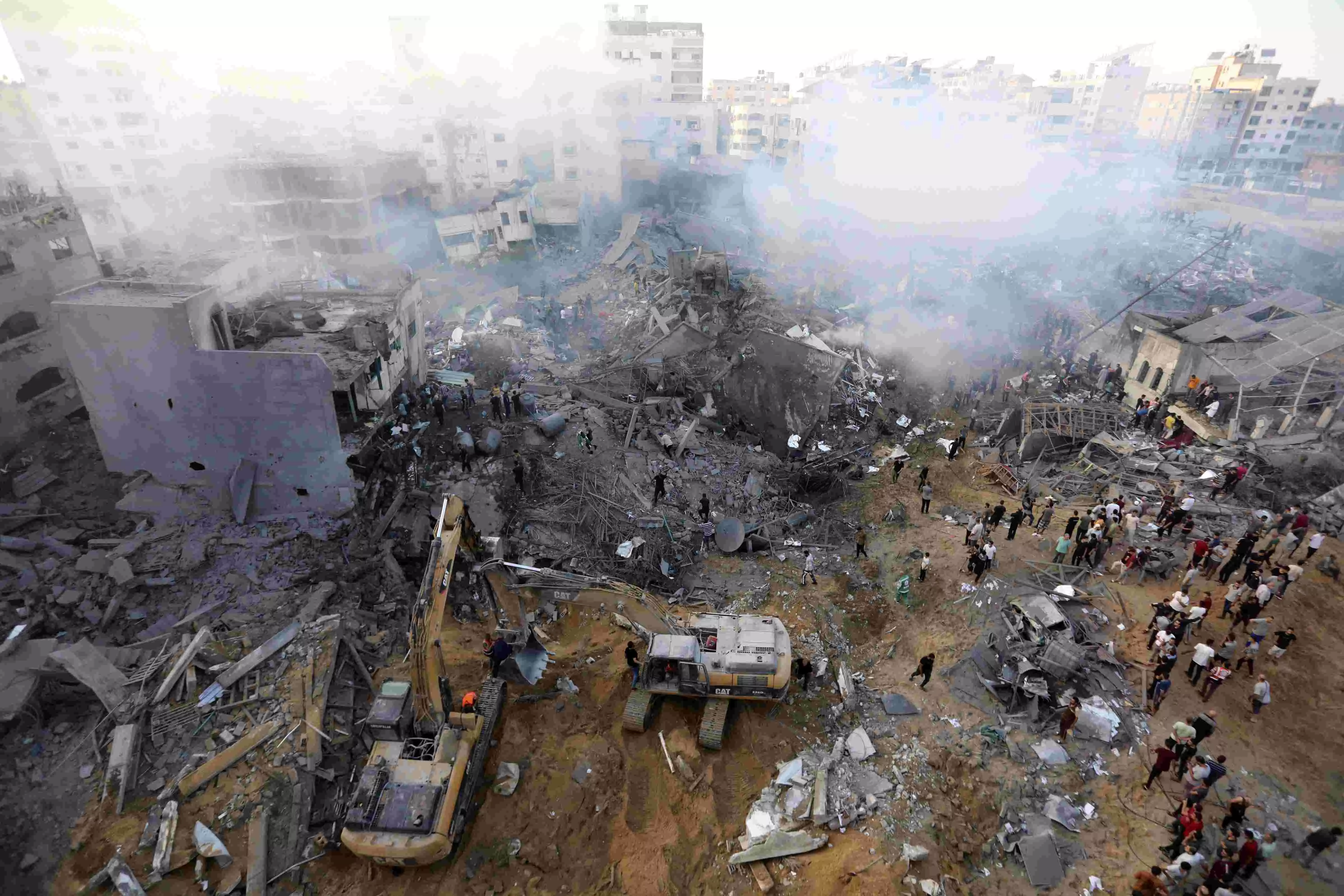Solidarity for peace

As deadly airstrikes continue to flatten Gaza, the world witnesses an escalating humanitarian crisis, marked by the devastating toll on innocent lives. The international community, in a much-needed display of unity, has aligned itself against the simmering humanitarian crisis in the ongoing Israel-Hamas conflict. The recent United Nations General Assembly (UNGA) resolution, demanding an immediate humanitarian ceasefire and unconditional release of hostages, received overwhelming support from 153 nations. However, this collective call for peace faced feeble opposition from 10 countries, including the United States, Israel, and several others, while 23 nations abstained from voting. Notably, the resolution refrains from condemning Hamas specifically, drawing criticism from Israel and its staunch supporter, the United States. Also, failing to pass the two-thirds rule, the first and second draft amendments to the resolution, proposed by the US and Austria, respectively, lapsed. India, traditionally neutral in global conflicts, notably shifted its stance by voting in favour of the UNGA resolution. While India abstained from a similar resolution in the past due to the absence of specific condemnation for Hamas, the current situation in Gaza seems to have compelled India to reconsider its position. The audacious atrocities committed by Israel appear to have swayed traditional allies and neutral nations alike, making it difficult for them to stand by Israel in the face of mounting global condemnation. Even the United States, a long-standing supporter of Israel, finds itself in a precarious position. Despite voting against the UN resolution, recent reports suggest that the US State Department is actively collecting information on potential Israeli violations, particularly the use of imprecise munitions leading to civilian casualties. CNN reported Wednesday night that the US has intelligence indicating nearly half of the 29,000 munitions Israel has dropped on Gaza are so-called “dumb bombs” — that is, they aren’t precise when launched at a target, typically leading to more civilian casualties. The apparent reconsideration by the US indicates a growing discomfort within the US administration, caught between supporting an ally and acknowledging the devastating impact of the conflict on civilians, particularly children and women. It is brutally ironic that even in a war that has been recklessly killing civilians in large numbers — with majority of the victims being children and women — on a daily basis, the US is still pondering upon a late realisation regarding the need for assessment. More than assessing the conduct of war by Israel, the US’ decision is aimed at hiding its own inconveniences — arising from its nearly isolated support for Israel. India's decision to align with the majority in favour of the UNGA resolution is a commendable step. While such resolutions are not legally binding, they serve as a powerful expression of global solidarity for peace. The resolution represents a collective call for an end to the bloodshed. However, the UNGA resolution is less likely to change the on-ground scenario in Gaza. In fact, terming the resolution to be “hypocritical”, Israel’s Permanent Representative, Gilad Erdan, said, “Not only does this resolution fail to condemn Hamas for crimes against humanity, it does not mention Hamas at all. This will only prolong the death and destruction in the region, that is precisely what a ceasefire means.” At this critical juncture, the United States holds a pivotal role in persuading Israel to agree to a ceasefire. The global community looks to the US to leverage its influence and guide Israel toward a path of de-escalation. The suffering of innocent civilians demands immediate action, and the US must prioritise the humanitarian aspect over political considerations. To sum up, the UNGA resolution, while symbolising global solidarity for peace, may have limited impact on the ground in Gaza. The world must now turn its attention to practical steps, urging the United States and other influential nations to actively pursue a ceasefire and humanitarian relief. The time for diplomatic manoeuvring is running out, and the urgency of the situation requires swift and decisive action to end the suffering in the Israel-Hamas conflict.



